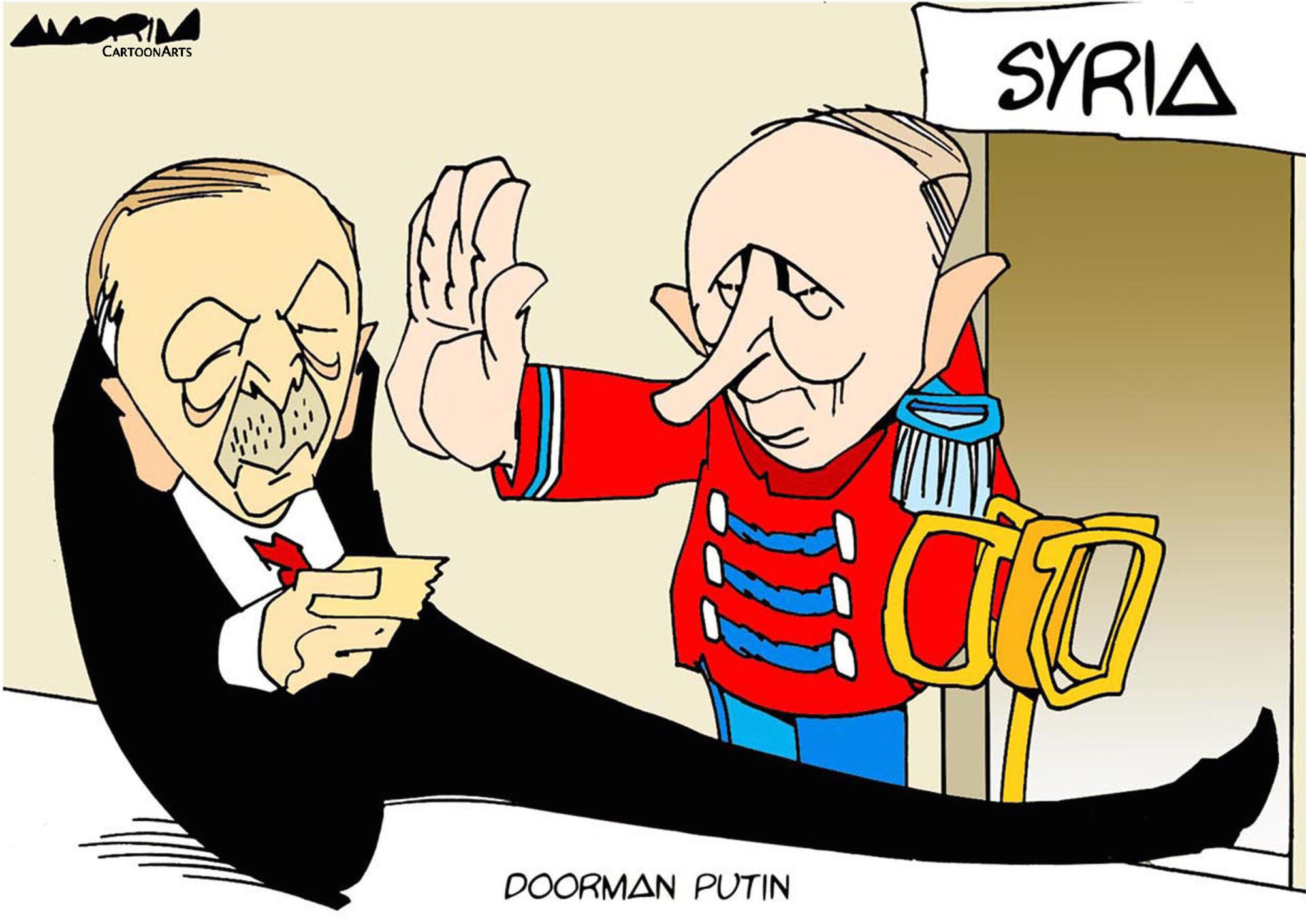Russia, U.S. President Barack Obama taunted in 2014, was a "regional power": a country capable of making mischief in its neighborhood but not of projecting global influence. It wouldn't be surprising if in the last two weeks, Russian President Vladimir Putin has chuckled at the memory of that jibe.
Russian mercenaries now occupy positions in Syria held just days ago by U.S. forces — a symbol of the collapse of America's position in the region and Moscow's ascendance as the key power broker in the Syrian civil war. Meanwhile, Putin conducted a state visit to the United Arab Emirates (as part of a larger trip to the Persian Gulf), where Russian flags lined the streets upon his arrival. Russia now possesses greater influence in the Middle East than at any time since the height of Soviet power in the 1960s. Not bad for a country that has an economy the size of a middling European power.
It's hard to remember that only a few years ago, Moscow's sole ally in the region — Syrian President Bashar Assad's regime — was tottering; it looked like Moscow was about to get pushed out of the region altogether. When Putin intervened militarily in Syria in 2015, Obama predicted that Russian forces would soon get stuck in a quagmire. It hasn't turned out that way.



















With your current subscription plan you can comment on stories. However, before writing your first comment, please create a display name in the Profile section of your subscriber account page.